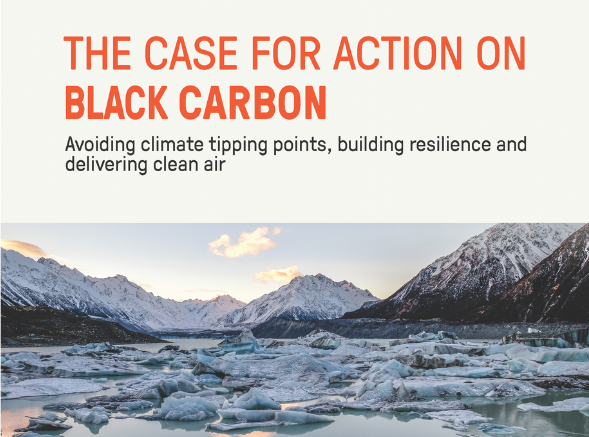This month, all eyes of the global clean air movement were on the UN Climate Change Conference (COP28), which resulted in a long overdue agreement by governments to transition away from fossil fuels. COP28 also included its first-ever health day and related health commitments (which we analyse here). You can also read our response to the outcomes and our key takeaways from COP28.
While a lot global attention may have been turned towards COP28, we highlight all the other news and efforts to tackle air pollution around the world from the last month.
Air pollution from fossil fuels ‘kills 5 million people a year’
A recent modelling study published in the BMJ reveals that of more than 8 million deaths worldwide from outdoor air pollution, 61% are linked to fossil fuels. Air pollution resulting from the use of fossil fuels in industry, power generation, and transportation is responsible for 5.1 million avoidable deaths annually worldwide. The findings suggest that transitioning away from fossil fuels could have a more significant impact on reducing mortality than previously reported.
The impact of toxic air on mental health in Rome
A new study in Rome by the Lazio regional health service explores the link between higher air pollution levels and mental conditions such as anxiety disorders and depression. Examining a population of less than 1.7 million urban residents with various covariates, researchers discovered significant links between air pollutants and higher risks of schizophrenia, depression, and anxiety disorders, supported by drug prescription patterns and confirmed by multiple sensitivity analyses.
1 billion people don’t have access to real-time data about the air they breathe
A report by the University of Chicago highlighting air quality data gaps reveals which countries could benefit from small, strategic investments in air pollution monitoring. A small global investment, ranging from $4 to $8 million annually, in air pollution monitoring and data programmes could make a significant difference to 838million people living in countries with high potential for national-level pollution improvements.
China to cut the density of air pollution by 10% by 2050
China plans to “strictly and reasonably” control total coal use and curb high-emissions projects to improve air quality. An action plan released earlier this month by China’s state council, outlines the aim to cut the density of hazardous airborne particles known as PM2.5 by 10% compared with 2020, and keep the number of days with severe pollution to less than 1%, according to the plan.
Philanthropic-private-public partnerships (PPPP) tackling Asia’s climate challenges
By 2050, the Asia-Pacific region risks a 35% GDP loss to climate change. A new report by the World Economic Forum and Philanthropy Asia Alliance – “Catalyzing Climate Action in Asia: Unleashing the Potential of Philanthropic-Public-Private Partnerships” – outlines the need for joint efforts in addressing climate change in a region where temperature increases are double the global average, resulting in significant and extreme weather events. The report looks at effective PPPP’s tackling Asia’s climate challenges, including a project filling in air quality data gaps in Cangzhou, China.
Period poverty: could air pollution make it worse?
Various studies point to the impact of air pollution on women’s health. Research by Emory University and Harvard University, US, show that higher exposure to air pollution during childhood and prenatal periods is linked to earlier onset of menstruation in girls. CNN reports on how air pollution in Kenya could make periods heavier, more painful and more expensive.
Bosnian cities top global air pollution ranking
Towns in Bosnia have topped the global air pollution rankings since last weekend, with the capital Sarajevo declaring an air quality warning and experts blaming residential solid fuel burning and transportation for the increase. Despite Sarajevo authorities’ goal to make the city carbon-free by 2035, people are opting for cheaper solid fuels for home heating and to drive older cars with higher emissions of pollutants due to the cost of living crisis, experts say.
Brussels low emission zone results in 30% air pollution reduction
In four years, Brussels’ low-emission zone led to a notable 30% decrease in nitrogen dioxide levels along major roads. The latest report by Brussels’ Environmental authority points to a similar or even more marked reduction of other harmful pollutants.
Technological, structural and behavioural measures to improve air quality
Air quality expert Alberto González Ortiz, from the European Environment Agency, talked to Euronews about the interactions between climate change and air pollution, and the importance of technological, structural and behavioural measures. “We can apply what is called technological measures, for instance, apply improvements in the performance of the vehicles. We also have what is called structural measures. For instance, we can create a good lane infrastructure. Or we can act on the urban design. And then we have behavioural measures. For instance, do not use the car that much, change to bike, change to walking”, Alberto explained.
Setting Africa on a cleaner development path
A new report by the Climate and Clean Air Coalition, Stockholm Environment Institute (SEI) Africa and SEI York, outlines how implementing certain strategies could set Africa on a cleaner development path towards Africa Union Agenda 2063. From improving transport options to using methane capture technology in the waste sector, the analysis highlights 37 measures in five key areas through which African policymakers could tackle air pollution and climate change at the same time. The importance of clean air measures and tackling climate change and air pollution together was bought before a panel of experts at our recent event, on the sidelines of the International Conference on Public Health in Africa, in partnership with Africa CDC.
Black carbon accelerated the melting of snow and ice in critical regions
Black carbon is a fine particulate matter (PM 2.5) component of the polluted air, a leading cause of poor health and premature deaths. A new report by Clean Air Fund, Berkeley Air, Orbis Air and Center for Study of Science, Technology and Policy, maps out opportunities to accelerate action on black carbon.

